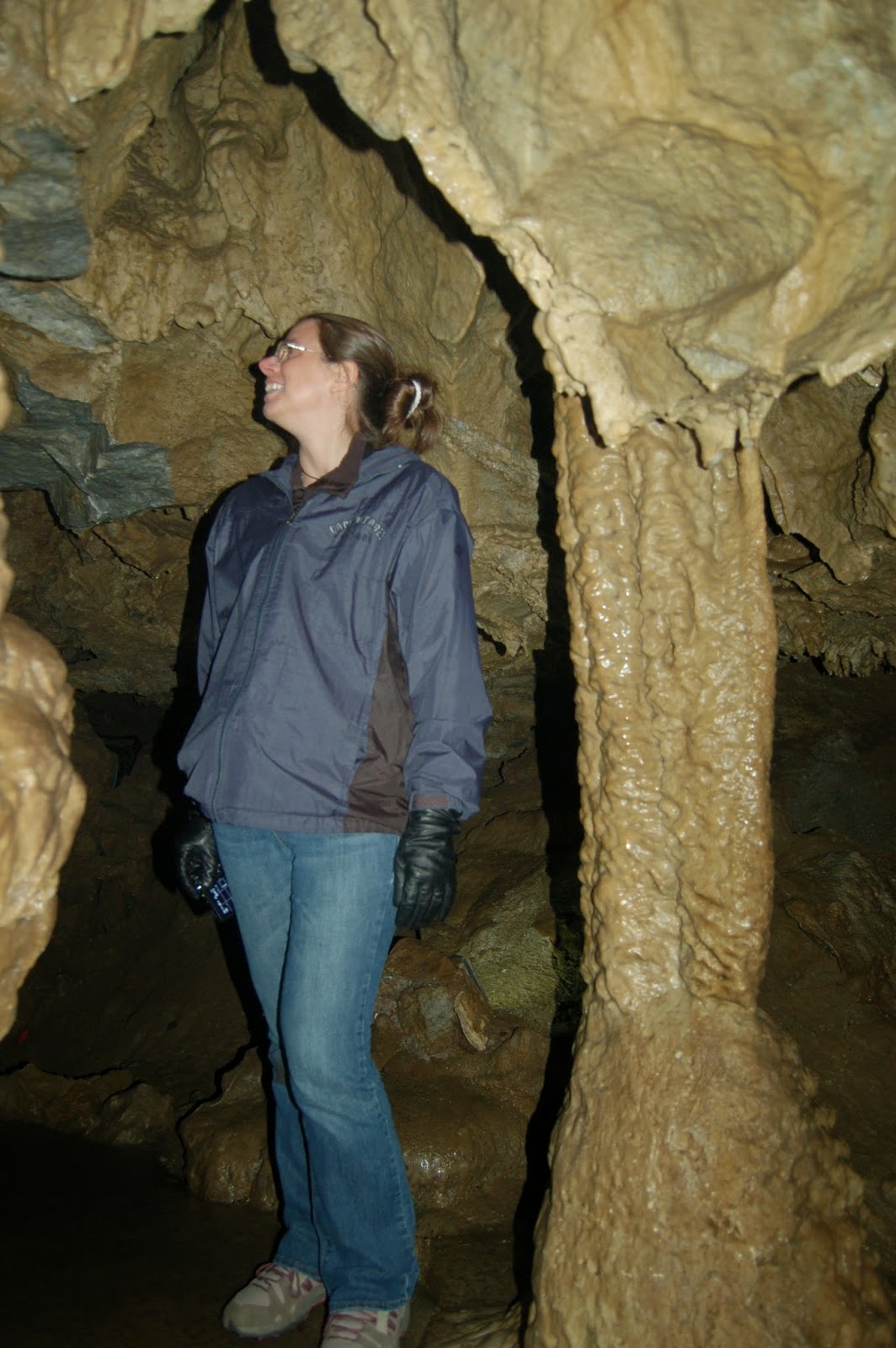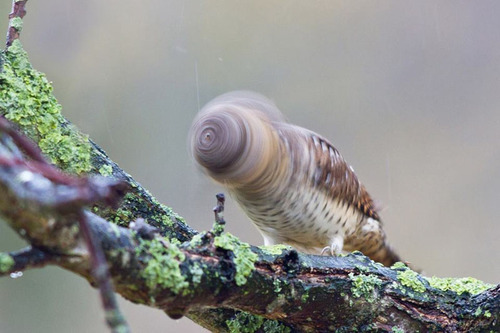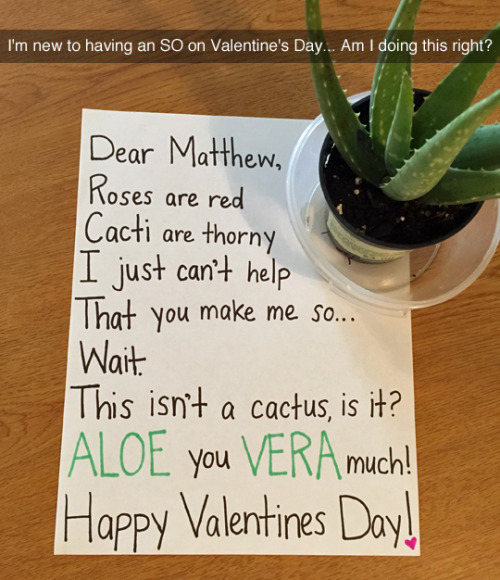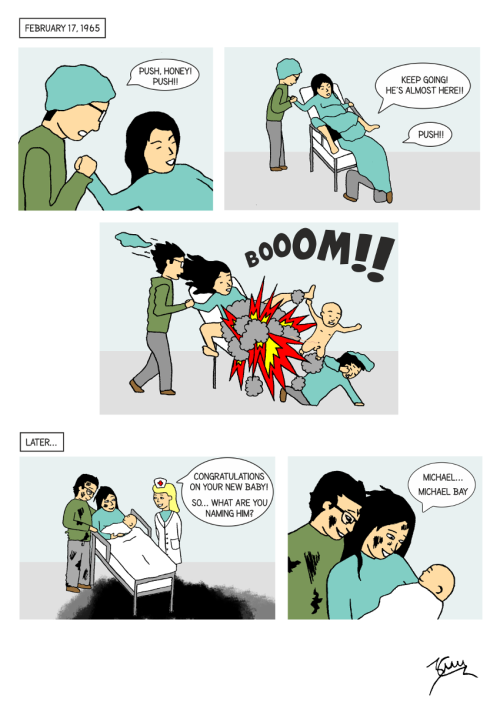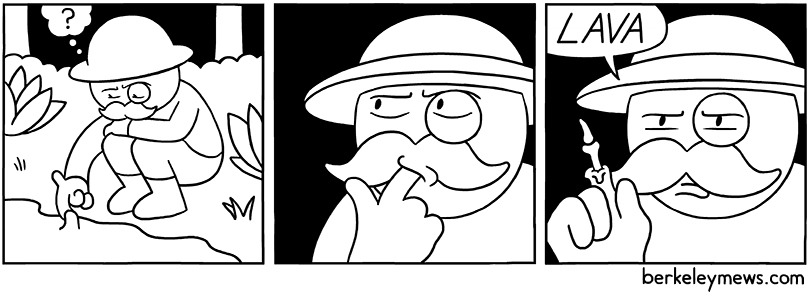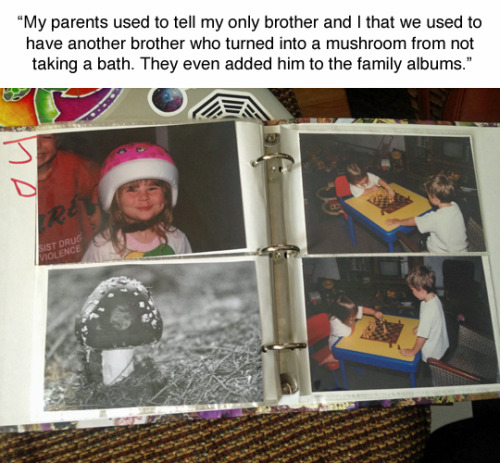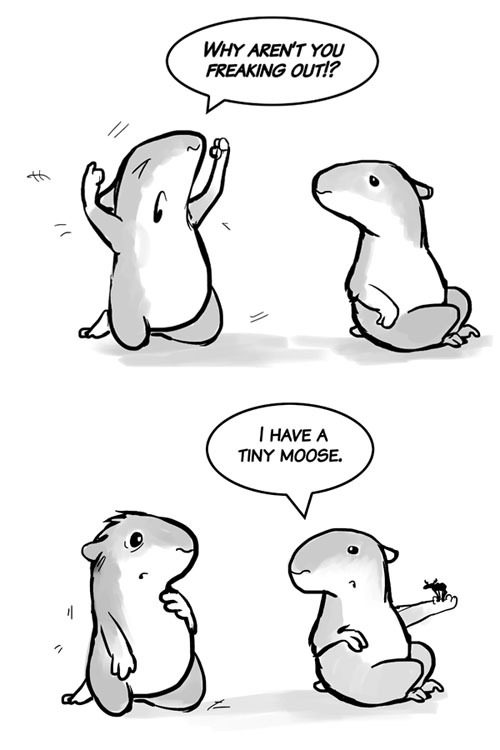In a move borne of sheer, dumb luck, I happened to take this shot just after a droplet of water hit the little depression in the top of the stalagmite near the center of the photo. The resultant splash can be seen above and to the left of that small bowl. I'm not sure about this, but it looks as if the little dip in the top of the stalagmite is the result of dissolution of the calcite making it up. In other words, it looks as if this speleothem has seen a reversal from calcite deposition to calcite erosion. This would not be a terribly surprising or unusual event over the history of such a cave. The chemistry of groundwater such as this is delicately hinged on its pH, which in turn is highly dependent upon and sensitive to the chemistry of the air and materials it passes through on its journey from the surface to its reemergence in the open air of the cavern. As a leading and scaffolding question, what do you know (or, what would you expect or guess) about the concentration of CO2 in soil air versus its concentration in open air?
Photo unmodified. May 9, 2013. FlashEarth Location. (Since we're underground, I have only a vague idea where this is with respect to the surface.)
Is This Your Hat?
11 years ago



